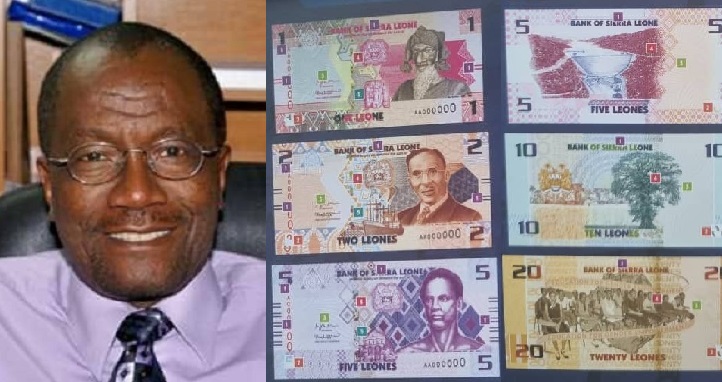Intermediating between net servers and net borrowers is the primary function of financial institutions and to this effectively, Bank Governor Kelfala Kallon says they must be trusted by the public.
“To ensure this trust, financial intermediaries must ensure that those they hire have the highest levels of honesty and professionalism. It is not enough for a financial institution to say that 99% of its staff are honest because the dishonest one percent can create problem” the Governor said.
He observed that honesty at banks in the country has begun to be questioned by customers with the incidences of bank customers realizing that notes have been pilfered out of sealed bundle of notes they receive at the country’s banks.
This Governor Kallon says is “something that is becoming nauseatingly frequent and must be eradicated to ensure the trust of the population.”

Bank Governor Kelfala Kallon
He noted that, the country is presently witnessing the sensational expose of fake degrees and certificates, and that, because the public’s trust is the most important determinant of how well a financial institution perform their intermediating roles the financial services sector, he warned must have no tolerance for holders of fake degrees and certificates.
Speaking last Thursday 14th April, 2022 at the launch of the National Strategy for Financial Inclusion 2022-2026, the Governor informed Managing Directors at the launch that “effective immediately all financial institutions operating in the country must provide within 15 working days’ proof of authenticity of all degrees and certificates by their employees to the Banking and Supervision Department for verification.”
With all the banks informed of this new directive, Governor Kallon added that anyone found to have fake degree or certificate within the financial sector will be deemed unfit to work within the sector. He further urged employees within the banking sector to practice the highest degree of honesty to protect bank clients against any fraud operation.
According to the strategy, it stated that consumers have little trust in commercial banks due to limited product offerings which often do not cater to their needs. Aside from affordability, consumers have also voiced their concerns about several quality-of-service issues from fraud to poor customer service, long queues at banks and delays in receiving payments into their accounts.
The Bank of Sierra Leone (BSL) introduced a process for tracking complaints and redressals and has collected data in this regard from Financial Service Providers (FSPs) over the past few years.
According to the Central Bank, while data across Mobile Money Operators (MMOs) are more thorough in their regular reporting to BSL, reporting from commercial banks from 2018 to date, show a need for significant improvement.
The bank says it is working to enhance the process and procedures for reporting, tracking and resolving complaints across wide range of FSPs by establishing a complaints and redressals system that can be accessed both online and by mobile leveraging USSD technology.
Data from MMO Returns for period ending 2021, the Bank said there were 1,793 PIN reset, 498 Account Unlock, 12,993 Cash Reversals and 5,748 Fraud categories of complaints. There were only 19 registered various complaints for commercial banks according to the BSL Consumer Protection Section, 2016-2021.
Awoko Newspaper reports that, the perceived lack of trust in financial institutions, the Bank says is evidence by a large unbanked population. “This is not only due to a lack of financial literacy but also client’s perceptions of the instability of the banking sector. To gain the trust of consumers, the BSL has embarked on the establishment of a deposit insurance scheme” the Bank Governor said.

 Post a comment
Post a comment










Comment(s)
Disclaimer: Comments expressed here do not reflect the opinions of Sierraloaded or any employee thereof.
Be the first to comment